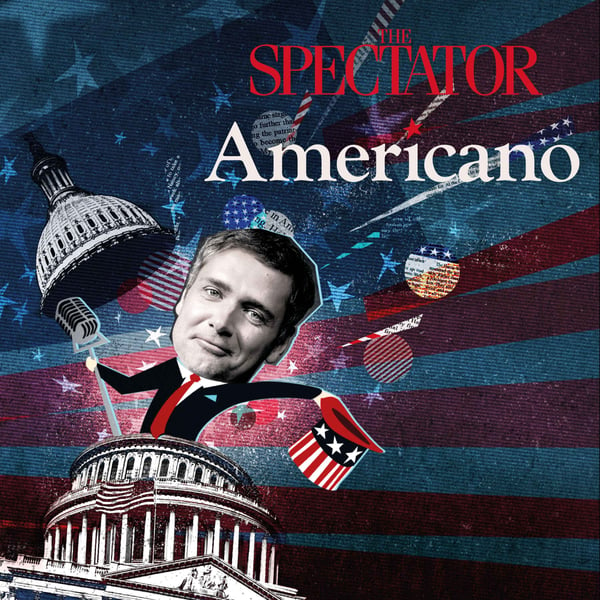Are Big Tech monopolies the biggest threat to democracy?
Americano
The Spectator
4 • 714 Ratings
🗓️ 19 September 2024
⏱️ 38 minutes
🧾️ Download transcript
Summary
Transcript
Click on a timestamp to play from that location
| 0:00.0 | Subscribe to The Spectator in September and get three months of website and app access absolutely free. |
| 0:06.2 | Follow the Tories leadership campaign, Labor's inaugural budget, and the U.S. elections with Britain's best-informed journalists, and get your first three months free only in September. |
| 0:15.1 | Go to spectator.co.com.uk, forward forward slash sale 24. |
| 0:34.7 | Hello and welcome to the Americano podcast, a series of discussions about American politics, power, and prejudices. |
| 0:41.5 | This year, 2024, is an election year in America, a presidential election year. |
| 0:47.9 | And so we will be doing two podcasts a week, rather than our usual one, because we want to, |
| 0:51.4 | and because we know you can't get enough Americano in your life. |
| 0:56.4 | Today we are going to be talking about the power of monopoly in America. |
| 1:03.5 | And to do so, I'm delighted to be joined by Barry Lynn, who is director of the Open Markets Institute. And he has written an extremely interesting cover piece in Harper's magazine. |
| 1:08.9 | I only have the printout here, but I highly recommend everyone |
| 1:11.3 | go online and read it because it's about an extremely important subject in America that is |
| 1:18.0 | probably not covered enough in the press, and that is antitrust laws. Barry, there's quite a lot |
| 1:25.4 | to unpack in this piece. So I thought I might start by asking you to explain a bit in your piece where you say that there's a lot of talk about post-liberalism in America and Patrick Deneen wrote this book about how liberalism has failed. |
| 1:40.8 | But you say at the end of the piece, we have failed liberalism. Can you explain what |
| 1:46.9 | you mean by that? Yes. First, I mean, thank you also for having me on today's, you know, on today. |
| 1:56.4 | Yeah, so what I was getting at with that is that, you know, we, and this is true, not just in the United States, but this is true in Britain. |
| 2:04.9 | It's true in Western Europe. It's true in democracies around the world. |
| 2:10.5 | We forgot the basic tools that we have used, that we perfected over the course of 400 years, that we have used extremely |
| 2:20.0 | effectively over the last 200 years to protect ourselves against concentrations of power |
| 2:28.0 | in the political economy, concentrations of power and control that would threaten our individual liberty, that threaten our |
| 2:36.4 | democracies. And we forgot because there was this movement, the neoliberal movement or the libertarian |
| 2:44.7 | movement, back in the late 70s, early 80s, into the 90s, that radically changed how we use our fundamental regulatory |
... |
Please login to see the full transcript.
Disclaimer: The podcast and artwork embedded on this page are from The Spectator, and are the property of its owner and not affiliated with or endorsed by Tapesearch.
Generated transcripts are the property of The Spectator and are distributed freely under the Fair Use doctrine. Transcripts generated by Tapesearch are not guaranteed to be accurate.
Copyright © Tapesearch 2025.

